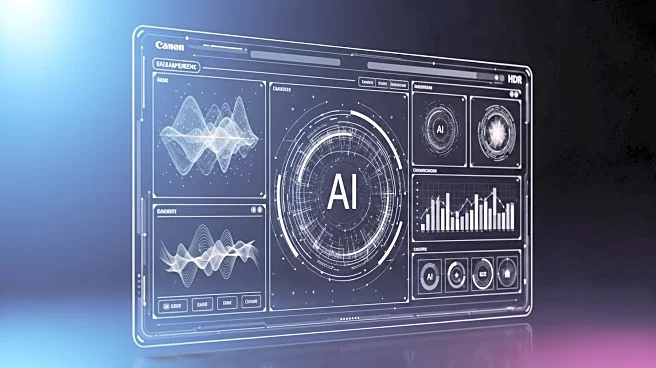What's Happening?
An artificial intelligence (AI) tool developed at the University of Surrey is transforming the transcription process of Supreme Court hearings. This innovative system, trained on 139 hours of courtroom hearings and legal documents, aims to enhance transparency in the legal system by reducing transcription errors by up to 9% compared to leading commercial alternatives. Professor Constantin Orăsan, a co-author of the study, highlighted the outdated nature of current court documentation methods and emphasized the AI tool's ability to improve access to justice. The tool is specifically designed to handle the unique language used in British courtrooms, and it also features a semantic matching capability that aligns paragraphs in legal judgments with corresponding timestamps in video recordings. This development has attracted interest from major institutions such as the UK Supreme Court and the National Archives, suggesting potential for wider adoption.
Why It's Important?
The introduction of this AI tool is significant as it addresses the longstanding issue of outdated transcription methods in the legal system, which can hinder access to justice. By reducing errors and improving the accuracy of court hearing transcriptions, the tool enhances the transparency and efficiency of legal proceedings. This advancement could lead to more informed legal decisions and better public understanding of court processes. The interest from prominent institutions indicates a recognition of the tool's potential to modernize legal documentation practices, which could have far-reaching implications for the legal industry, including increased accessibility and efficiency in legal research and case management.
What's Next?
The AI tool's successful implementation at the University of Surrey may lead to its adoption by other legal institutions, potentially revolutionizing how court proceedings are documented and accessed. As interest grows from entities like the UK Supreme Court and the National Archives, further development and refinement of the tool could occur, possibly leading to its integration into broader legal frameworks. This could prompt other countries to explore similar technologies, fostering a global shift towards more transparent and efficient legal systems.
Beyond the Headlines
The deployment of AI in legal settings raises important ethical and legal considerations, such as data privacy and the potential for bias in AI algorithms. As the tool gains traction, it will be crucial to address these issues to ensure that the technology is used responsibly and equitably. Additionally, the tool's ability to semantically match legal judgments with video recordings could transform legal education and research, providing new ways to analyze and understand complex legal arguments.










